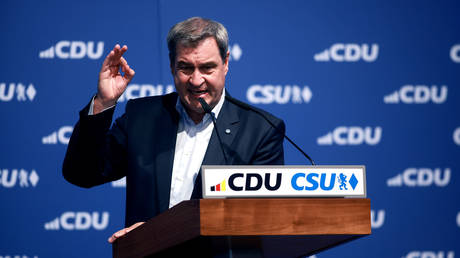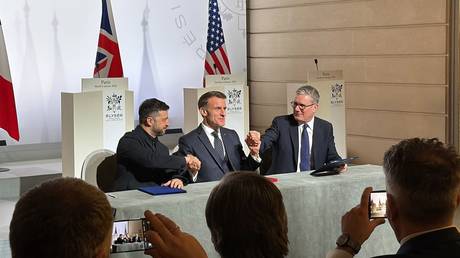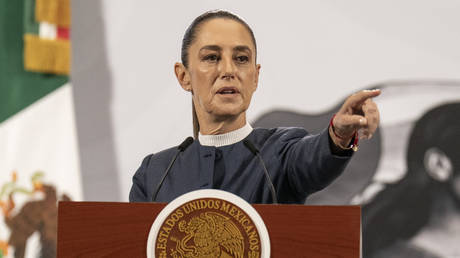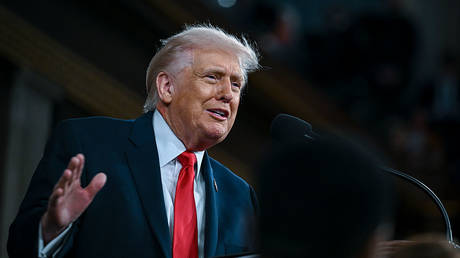
A co-leader of the conservative bloc says teaming up with the Social Democrats would be impossible with the current chancellor
The leader of Bavaria’s Christian Social Union (CSU), Markus Soder, has said the German conservatives would only enter into a coalition with the Social Democratic Party (SPD) if Olaf Scholz were to step down as chancellor. Soder, whose CSU together with the larger Christian Democratic Union (CDU) traditionally form a united front in German politics, added that the conservatives were not considering any other parties as potential coalition partners.
Last week, the chancellor fired Finance Minister Christian Lindner, reportedly over disagreements regarding next year’s budget. The move led to the Free Democratic Party (FDP) abandoning the ruling three-way ‘traffic-light’ coalition, causing it to collapse.
Now at the helm of a minority government, Scholz announced that the Bundestag would hold a vote of confidence on January 15. If he fails to secure sufficient support, a snap election would be held in March 2025.
In an interview with the Bild am Sonntag newspaper on Sunday, Soder said that in the CDU/CSU leadership’s eyes, the “the only realistic chance [for a coalition] is with the SPD without Olaf Scholz.”
According to Bavaria’s governor, the chancellor “should do the country a great favor and go decently. This is his very last task.”
The politician described the collapse of the traffic-light coalition as a “historic situation,” stressing that “there will be no artificial prolongation of the traffic-light projects that are doomed to failure anyway.”
Soder also urged Scholz not to drag his feet, and to hold a vote of confidence as soon as possible. He argued that postponing it until mid-January would be “unfitting for democracy” and harmful for Germany.
The CSU leader told Bild am Sonntag that the conservatives are seeking to “put this country back on track,” and that Germany is in need of an “economic and spiritual” renewal.
In a statement published on the CDU’s website last Thursday, party leader Friedrich Merz – widely tipped to become Germany’s next chancellor – also urged Scholz to schedule a vote of confidence in the coming weeks, instead of mid-January, to pave the way for a snap election early next year.
According to numerous opinion polls, the CDU/CSU are comfortably ahead of all the other parties in Germany, with an approval rating of 33% as of early November.
Scholz has seen his popularity slide for months now, with a majority of Germans dissatisfied with his performance as chancellor, prompting some media outlets to brand him the “most unpopular chancellor of all time.”




